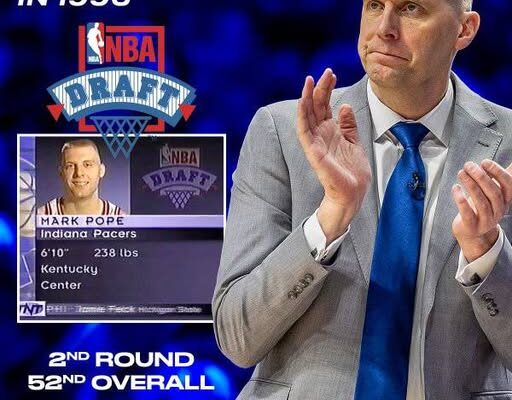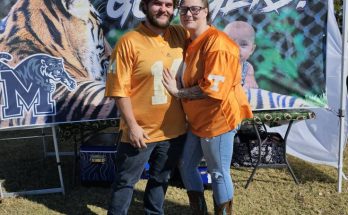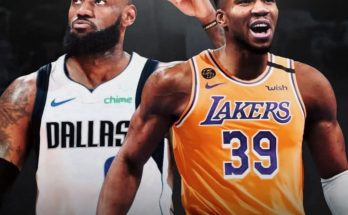Mark Edward Pope’s rise began quietly, in Bellevue, Washington—a far cry from the basketball powerhouses of the Midwest and the South. Born September 11, 1972, Pope attended Newport High School, where he methodically tore down records, averaging some 24.2 points, 16.1 rebounds, and 5.2 blocks as a senior in 1991 (si.com). While his dominance on the court drew respect, it was his work ethic—driving hard, crashing the boards, baiting defenders into scrums—that clinched his reputation. One coach joked, “He’s done everything for me except pay my MasterCard” (si.com).
Recruiting interest came from national contenders—Washington, Arizona, Syracuse, Kentucky—but Pope chose the Huskies, drawn by a connection with UW coach Lynn Nance. He also prioritized familiarity and distance from home. That decision set the stage for early success and frustration: at Washington he was named Pac‑10 Freshman of the Year (1992) and set a school freshman rebounding record at 8.1 rebounds/game (si.com). Yet his sophomore year was clouded by team turmoil: Nance controversially dismissed two Black teammates, triggering accusations of racism. Pope, uncomfortable, sought a fresh start. Requests to transfer emerged from a moral place—“I can’t stay … and look those people in the face,” he said
In 1993, Pope transferred to Kentucky—a move that forced a sit-out season but ultimately aligned him with one of NCAA basketball’s most storied programs. Once eligible, he anchored deep Wildcats squads under Rick Pitino. Characterized as “the glue who held a lot of egos together,” Pope wasn’t springy or flashy: he didn’t disappear when minutes were scarce (si.com). Instead, his energy, physicality, and cohesiveness elevated the team dynamic.
He played in every game during his two years, averaging around 7.6–7.9 points and 5.7 rebounds per game . During the 1995 SEC tournament his clutch performance—double‑doubles through the weekend—earned tournament honors . Then, in 1996, Pope captained a lineup rich with NBA-bound talent—Tony Delk, Antoine Walker, Walter McCarty, Derek Anderson, Ron Mercer—through an unblemished NCAA tournament run. He wasn’t the marquee star, but his leadership, hustle, and those final free throws helped seal victory against Syracuse in the title game
Pitino summed it up best: “Whether he started or didn’t start never mattered to him. … He was the hardest worker” (si.com). Mission accomplished. In Lexington, he wasn’t just a player—he was the backbone of the 1996 champions.
The next logical step was the NBA, but Pope wasn’t a lottery pick. He fell to the second round (52nd overall) in the 1996 NBA draft, selected by the Indiana Pacers . Undeterred, he jumped overseas to Turkey’s Anadolu Efes, sharpening his physicality and confidence against diverse foes .
Returning to the Pacers in 1997, Pope joined Larry Bird’s staff. This frigid journey was part challenge, part audition. In ’99, after briefly playing with La Crosse Bobcats and back in Turkey, he reentered the NBA—this time with the Milwaukee Bucks, under George Karl prd.amazon.byu.edu). That 2000‑01 season yielded 45 starts and a deep Eastern Conference Finals run
But he never became a star. Over six NBA seasons (Indiana, Milwaukee, Denver), he played 153 games with averages of just 1.9 points and 1.7 rebounds (sportskeeda.com). His strengths: toughness, reliability, relentless defense. “He had a respectful fear but tremendous courage,” said Karl (espn.co.uk). His NBA biography is that of a fighting role player, hanging around because he worked harder than most. That same relentlessness would chart his post-playing path.
By mid-2000s, NBA doors closed. A career pivot loomed. Pope had earned an English degree—and nearly became a Rhodes Scholar in college—but also had extreme intellectual ambition. Indeed, he had taken prerequisites while playing and earned admission to Columbia Medical School . He spent two years there. Yet something pulled at his heart—the game he refused to walk away from .
Friends expressed surprise, others warned he’d squander a medical future. But Pope’s priority—his love of basketball and desire to mentor—won. He accepted a non-coaching role at Georgia in 2009 (“director of basketball operations”), under Mark Fox Georgia became his launching pad.
In quick succession, Pope earned a coaching certification:
- 2009–10: Georgia (Operations) under Fox
- 2010–11: Assistant coach at Wake Forest under Jeff Bzdelik
- 2011–15: Assistant at BYU under Dave Rose
At BYU he helped engineer four straight 20-win seasons, three NCAA tournament berths, and a semi-final NIT run .
In 2015 he grabbed his first head job: Utah Valley University (UVU), a mid-major lacking pedigree. But Pope immediately delivered:
- 2017–18: 23–11 (10–4 WAC), CBI berth
- 2018–19: 25–10, CBI semifinal + record single-season wins
- 30–2 home record (2017–19), including 22 straight wins (
He created what he dubbed #Toughest24—a brutal early-season stretch against Kentucky and Duke—intended to build resilience (byucougars.com). Pope turned UVU into a contender, proving that his high-energy coaching style could be translated successfully outside blue-blood programs.
In 2019, BYU beckoned again—this time as head coach . He inherited pressure: preserve conference stature, rebuild identity. Pope surged:
- 2019–20: 24–8, most wins by first-year coach in program history
- 2020–21: 20–7, NCAA Tournament appearance
- BYU moved into Big 12, and went 10–8—solid for a new member (byucougars.com)
Pope’s squads were known for shooting (3‑point volume and accuracy), unselfishness, ball movement, and consistency in home court dominance (deseret.com). Amid this success, he earned the USBWA District VIII Coach of the Year and semifinalist for Naismith Coach of the Year (byucougars.com). He wrapped with a 110–52 record across 5 seasons (ukathletics.com).
In April 2024, Kentucky made a bold hire: bringing back its 1996 captain as head coach (apnews.com). Pope was not the expected choice—unlike a rising mid-major or NBA assistant, he was this program’s own: alumnus, champion, coach. AD Mitch Barnhart praised his tempo, defense, recruiting, and ties to the community (apnews.com).
His inaugural season rewrote Wildcats history:
- 24–12, Sweet Sixteen appearance
- 8 victories over AP Top‑15 teams (5 in Top‑10), tied a national mark and set a Kentucky single-season record
- Noteworthy wins: Champions Classic vs. Duke; Pitino sent congratulations
- NCAA Sweet Sixteen sealed his legitimacy .
He also prioritized recruiting through the transfer portal, targeting experienced upperclassmen and employing deep data-analysis and 24/7 engagement—‘late-night recruitment drives’
By early 2025, Pope notched his 200th career win, including four Top‑15 victories in a season
Further validation came in the 2025 NBA Draft: former Pope recruits Koby Brea (41st, Suns) and Amari Williams (46th, Celtics)—neither expected but realized under his tutelage. Their selection spoke to Pope’s skill in transforming players and bolstering Kentucky’s program legacy.
Pope’s playing career was defined by resilience and relentlessness. He carried that forward into coaching:
- Energy-first approach: constant drills, high-tempo offense, mass ball movement; his teams rank high in 3-point rate, assists, assist/turnover ratio .
- Emotional intelligence: empathy, leadership, collective buy-in—Pac‑10 teammates, NBA front offices, and UVU/BYU players testify that Pope builds relationships that foster trust and performance.
- Preparation & IQ: known to study opponents obsessively; he even mingled athletic insights with experiences from Columbia.
- Recruitment versatility: mixing high school blue-chip prospects with seasoned transfers realms to get balanced rosters—this was pivotal at Kentucky .
- Values anchored: a Latter-day Saints member; married Lee Anne (an equally disciplined partner), they navigate parenthood with four daughters, anchoring his life with purpose
Pope isn’t flashy; his value lies in substance over spectacle, trusting process over pedigree.
Mark Pope’s journey is an evolving emblem:
- He played in Rupp Arena in 1996; in 2024 he returned—trophy in hand—as coach).
- He once coached against Kentucky in 2017 (UVU lost to SGA’s Wildcat squad). Now he coaches alongside NBA MVP Shai Gilgeous‑Alexander’s legacy—a fitting reflection on how paths cross and coast
- He survived NBA cuts and lockouts, tried medical school at Columbia, then came full circle into basketball leadership—showing career arcs aren’t linear.
- His two 2nd‑round NBA picks in 2025 are reminders that Kentucky’s production pipeline remains powerful—despite the end of the first-round streak
Although Pope brought stability and swagger, Kentucky remains the gold bar:
- Expectations: national title contention, sustained NBA talent output, and championship-seeded NCAA runs.
- Legacy custodianship: succeeding John Calipari, Tony Barbee, Rick Pitino—he must sustain recruiting pipelines, branding, and alumni support.
- Innovation to maintain: recruitment strategies and playstyle must stay dynamic amid the transfer portal arms race (espn.co.uk).
- Culture-building continues: near-impossible standards met with near-perfect execution on and off-court.
If Pope can align his unwavering ethos with Kentucky’s expectations, he may redefine his personal legacy—and the institution’s modern narrative.
Mark Pope walked a path seldom traveled—from bench player at powerhouse programs to benchwarmer in the NBA; from dropout at Columbia Medical to LinkedIn-less analyst in Georgia; from mid-major coach to orchestrator of one of college basketball’s greatest comeback scripts.
Along the way, he’s carried three constants: heart (relentless work ethic), brain (strategic intellect and emotional fit), and heart again (community, family, spiritual center). He proved that roles don’t define you; resilience and authenticity do.
Now, at 52, one of UK’s own stands at its center. The sense of destiny, of coming home, is vivid. The banner-obsessed fanbase expects not just growth, but trophies. Pope’s full-circle arc is compelling—but now comes the heaviest lift: sustainable greatness in Lexington.
You wouldn’t believe it… yet it’s true. A Bellevue kid, overlooked and undervalued; a career role guy with quiet power; a coach with NBA dreams who chased medicine but returned to hoops. From bench’s end to center stage, Mark Pope is Kentucky’s coach—its son—and perhaps, its future.



